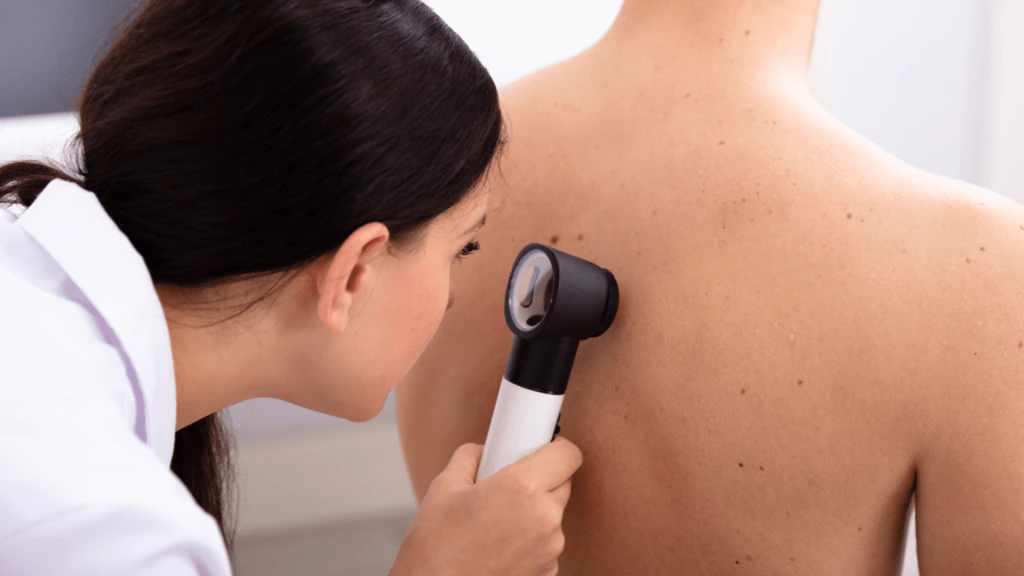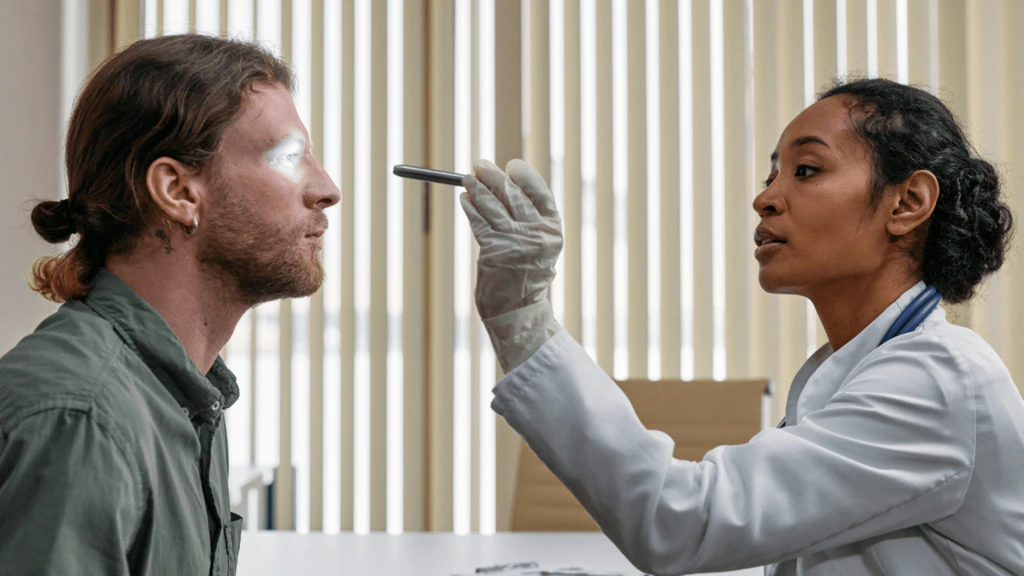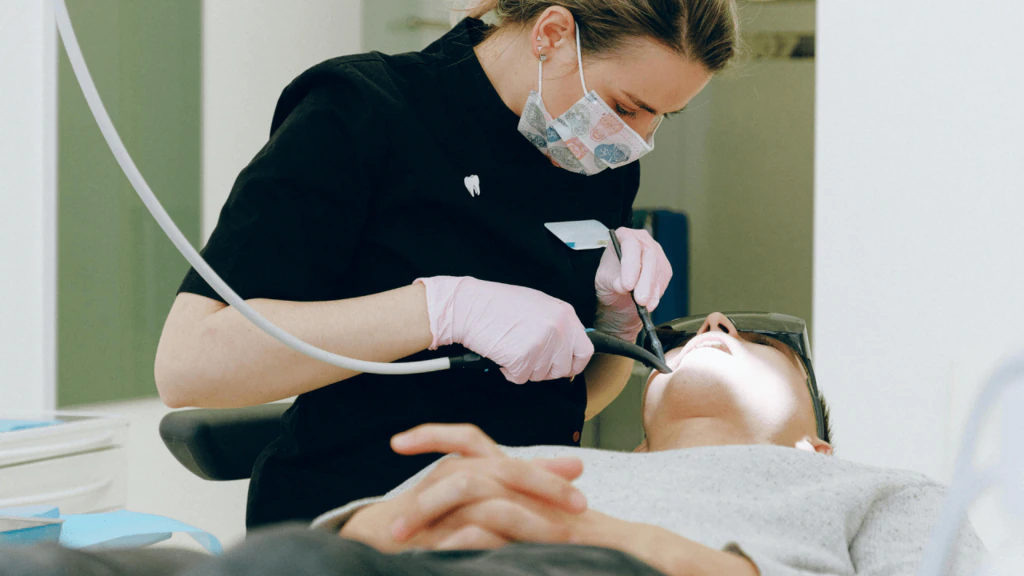The six health checks every man needs to book now

It's Men's Health Week, time to make some gains inside the market and out. Pic: Getty Images.
With Men’s Health Week in the spotlight last week, new data exploring the state of men’s health in Australia has experts pleading with the public to take their well-being seriously.
Words by Mia Erickson for Body+Soul
According to research conducted by the Prostate Cancer Foundation of Australia (PCFA), an overwhelming majority of Aussie men are choosing to delay health check-ups and visits with their doctor, as well as cutting back on vital prescription medication, and sadly, the reason behind their health-related apprehension is all too familiar to most Australians.
Just as it’s forcing us to forgo life’s little luxuries and switch to a more affordable grocery list, the rising cost of living is having a detrimental impact on Australians’ ability to proactively take control of their health needs, with men in particular forgoing their medical needs in pursuit of saving money.

The sad state of men’s health
According to the research, 51 per cent of men are delaying health checks and doctor visits in an effort to conserve cash, putting their health at considerable risk, especially as they age.
The PCFA Men’s Health Report, surveying over 1,300 Australian men, reveals 57 per cent consider healthcare to be too expensive for their everyday needs, with the rising premiums and memberships of private health insurance continuing to be a barrier to access for many.
With an increasing number of people unable to afford basic health care or insurance, it’s no surprise that 92 per cent of the survey respondents believe the government should be doing more to alleviate the cost pressures associated.

In addition to over half of Aussie men delaying or skipping regular health checks, one in ten surveyed revealed they have purposely reduced or skipped dosages of prescribed medication in an attempt to make it last longer and prolong the need to repurchase.
It’s a growing trend that experts such as Anne Savage, CEO of PCFA, say could have detrimental impacts and should be a major wake-up call for everyday Australians and experts alike.
“For too many men, cost is becoming a barrier to care – and that has real consequences,” says Savage. “When men put off seeing a GP or stretch their medications just to get by, we increase the risks of delayed diagnosis of a range of serious illnesses and disease, including prostate cancer.
“Access to affordable, timely healthcare is not a luxury – it’s a life-saving necessity.”

Under-resourced and underestimated
The most common cancer diagnosis amongst Australian men is prostate cancer, a disease still riddled with stigma and misinformation. Beyond an initial diagnosis, men with prostate cancer (or any kind of serious illness) will face the cost of treatment, ongoing scans, medications and private consultations, all while facing the persistent stigma surrounding seeking help that many men continue to feel.
“We need to normalise men seeking help, remove the financial barriers, and support early detection,” Savage urges.
“Men’s Health Week is the perfect time to take that first step – whether it’s a conversation, a check-up, or joining our Walk for Him campaign.”

6 essential health checks for men at every age
#1. Skin cancer screening
Given Australia is the skin cancer capital of the world (a title we do not wear proudly), and the fact that 2 out of 3 Aussies will be diagnosed with skin cancer in their lifetime, there is no excuse for skipping out on regular skin checks.
According to Cancer Council NSW, Australians should undergo a full-body skin check every 12 months, and those with a higher risk should opt for a check every 6 months. Factors such as a family history of skin cancer, working outdoors, having lots of moles or freckles and fair skin that burns easily can increase a person’s risk of developing skin cancer.

#2. Mental health checks
Sadly, suicide is the leading external cause of death for Australian men under 65, according to the most recent ABS data, meaning there’s never been a more crucial time than now to step up and address the barriers stopping men from accessing lifesaving mental health support.
In order to address mental health concerns such as anxiety and depression early on, it’s crucial to keep an eye out for symptoms and reach out to healthcare providers or designated services for support.
Beyond Blue’s online evidence-based K10 test can help you measure your level of distress and find the right kind of support. Remember, only a mental health professional can diagnose you with a mental health condition, so if you have concerns, it’s always best to visit your GP or healthcare provider for further information.
#3. Eye exams
One of the unfortunate side effects of our unstoppable technological advancement and on-demand entertainment is the increased degeneration of our ocular health and vision quality.
In general, people are recommended to get an eye test every two years, with people aged over 65 or with certain medical conditions urged to book in annually.

#4. Physical exam
A physical exam can be conducted by your GP at any regular check-up, and is an important method of monitoring things such as weight, height, and vital signs, as well as reviewing medical history. Changes to your vital signs – blood pressure, pulse, breathing rate and temperature – can indicate the presence of other, more serious conditions, so this is not the health check to skip or postpone.
#5. Immunisations
While most of us were fortunate enough to receive up-to-date vaccinations throughout childhood via school-based programs, the onus to manage our immunity and protect ourselves and others against certain diseases falls on individuals once we embark on adulthood. If you’re unsure which vaccines and immunisations you may be overdue for, discuss your medical history, age and travel plans with your GP. Also, don’t forget to get your flu shot annually, or suffer the snotty consequences.
#6. Dental check-up:
It’s generally recommended that you visit the dentist every 6 to 12 months for a check-up and cleaning to prevent issues such as gum disease and cavities
Crucial for maintaining oral health, which can impact overall health.

The health checks middle-aged men need to do
For men aged 40 to 59, regular health checks will become more detailed, screening for various age-related issues in addition to usual vital signs. These include:
Prostate cancer screening
Recommended for men over the age of 50, a Prostate-Specific Antigen (PSA) test should be conducted every two years to both screen for prostate cancer and monitor the effectiveness of treatment.

Lung cancer screening
With lung cancer being the deadliest form of cancer in Australia, due in part to late-stage diagnosis and ongoing stigma surrounding the disease, staying on top of regular screening has never been more important. Men over the age of 50 with a significant history of smoking are at much greater risk and should undergo a screening every two years.
Bowel cancer screening
Men aged 50 to 74 are eligible to receive a free at-home testing kit every two years to detect early signs of bowel cancer. With bowel cancer rates increasing, especially amongst young Australians, being proactive and following the guidelines has never been more important.
Other regular screening tests recommended for middle-aged men include a Lipid profile to check cholesterol levels, diabetes screening and bone density screening.
The health checks older men need to do

For men over the age of 60, general guidelines recommend the same rigorous screening methods for prostate cancer, lung cancer and bowel cancer.
Given the fact that hearing and vision naturally decline with age, it is recommended that men over the age of 60 undergo regular checks, especially if they are driving.
Bone density screening is also recommended for men over the age of 60, especially if they have a family history of osteoporosis.
This article first appeared in bodyandsoul.com.au as The 6 health checks every man needs to book now.
Related Topics

UNLOCK INSIGHTS
Discover the untold stories of emerging ASX stocks.
Daily news and expert analysis, it's free to subscribe.
By proceeding, you confirm you understand that we handle personal information in accordance with our Privacy Policy.








